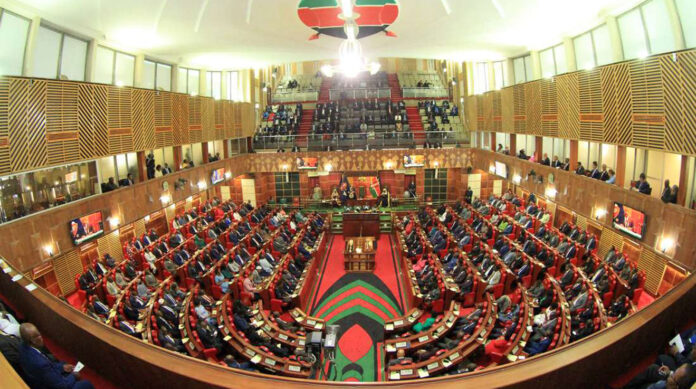Members of Parliament (MPs) from the Kenya Kwanza administration have confessed to passing the Finance Act 2023 without thoroughly understanding its implications, much to the dismay of the farming community. What initially seemed like a display of political unity has now boomeranged, bringing the administration face to face with the unintended fallout of their hasty decision-making.
Affordable Housing Act Challenged in Court: A Debate on Constitutional Rights and Public Land Usage
The Finance Act, touted as President William Ruto’s inaugural legislative victory, was championed vigorously by the government as a cornerstone for funding its developmental agenda. President Ruto’s impassioned plea for support from his allies resulted in an overwhelming majority of 184 MPs backing the bill, effectively enshrining it into law.
President Ruto Signs Affordable Housing Bill, Enforcing 1.5% Levy for Kenyans
However, the repercussions of this decision are now being keenly felt, particularly within the avocado sub-sector. Section 23 of the Finance Act, which appears to have slipped under the radar during deliberations, is poised to cripple avocado farmers with unexpected taxes.
Despite assertions from MPs that they were unaware of the provision or its potential impact on farmers, discontent among growers is palpable. The recent backlash faced by MPs during a stakeholder meeting at Deputy President Rigathi Gachagua’s official residence underscores the depth of frustration within the farming community.
MPs like Gathoni Wamuchomba, who initially stood against the bill, have found themselves on the defensive, grappling with accusations of neglecting the interests of primary producers in agriculture. The justification that the Finance Bill is too extensive to comprehend in its entirety has been met with skepticism, with farmers demanding greater accountability and diligence from their elected representatives.
Funding Hurdle Threatens Kenya’s Peacekeeping Mission in Haiti
Critics have condemned the rush to pass the bill, highlighting its detrimental effects on vulnerable groups such as small-scale vendors and agricultural workers. Nominated MP John Mbadi’s assertion that the legislation is detrimental to the marginalized echoes the sentiments of many who feel neglected by their lawmakers.
In light of mounting pressure and public outcry, legislators are now scrambling to rectify their oversight. Calls for amendments to exempt agricultural players from taxation until value addition or exportation are gaining momentum, signaling a potential shift in policy direction.


